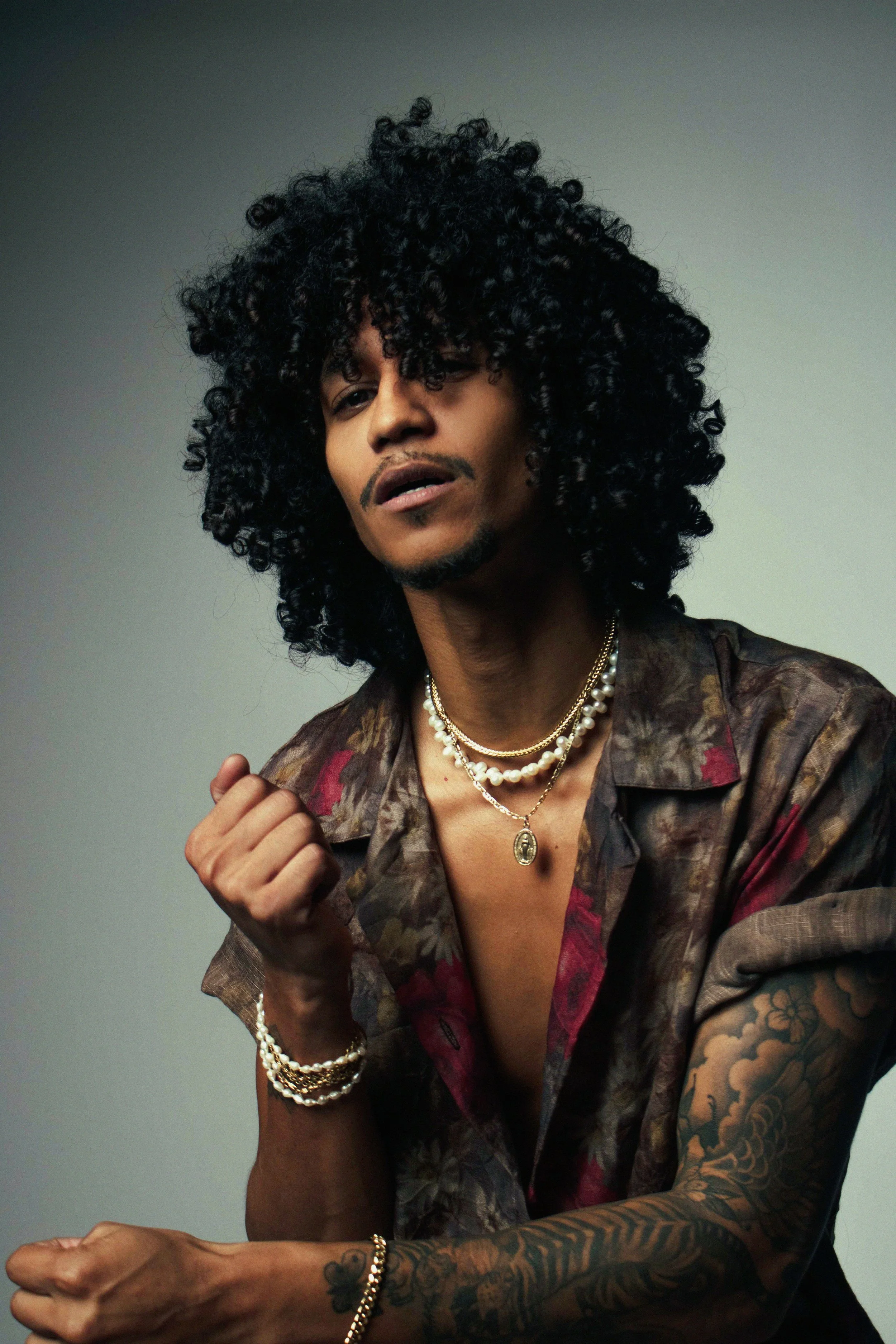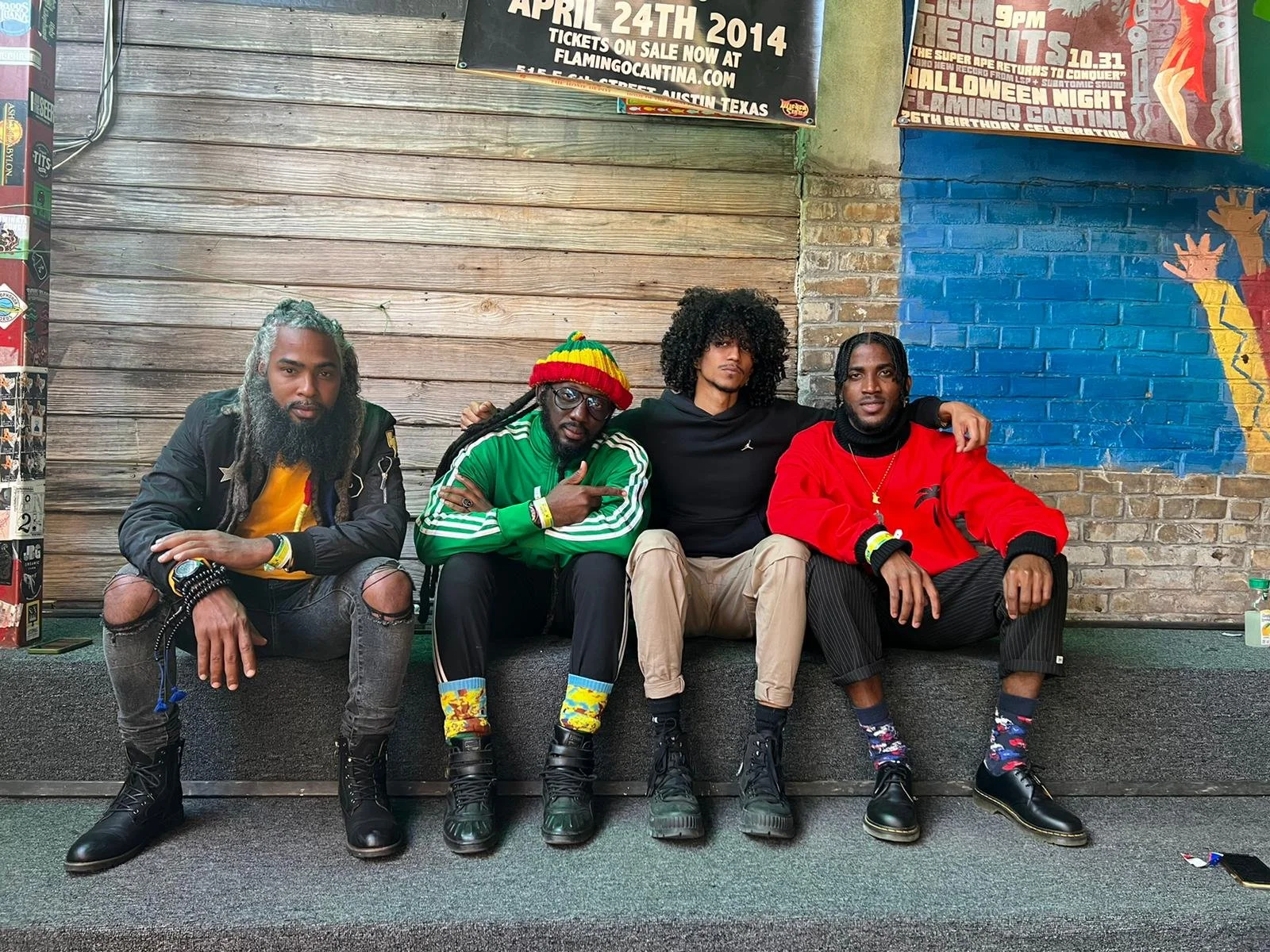Kalpee - Men's Mental Health Awareness (Interview)
Recently I had the opportunity to talk to Kalpee, a quickly rising artist hailing from Trinidad & Tobago, making waves with his tropical style and sound of “New Calypso”.
With Men’s Mental health Awareness Week having just gone by, we took the time to discuss the effects that the music industry can have on people, how the image of men in certain cultural backgrounds can cause a strain on them, as well as the steps we can take as communities to allow for people to openly discuss their issues in a comfortable environment. Kalpee offered up his experiences of growing up in the Caribbean and how mental is treated amongst men living there.
Kalpee is one of the founders of Island Waves, a platform with the aim to bring Caribbean music to the forefront of the international music scene. Over the last few weeks, Island waves launched their campaign “Lets Talk About It”, which sees the platform reach out to its audience to encourage everyone to talk more about their issues and discuss mental health more openly.
What would you consider to be some of the hidden effects that the music industry has on an artist’s mental health?
”I think the music industry can definitely have some negative effects on artists’ mental health, as we are creating something so personal to ourselves and then putting it out for the world to judge, so it can be pretty intimidating at times.”
“Social media is such a necessary tool when it comes to advertising your music and artistry, but it can be exhausting having to constantly create content to feed such a fast pace audience. I’m really not that great at posting and I’m constantly being told to go live as that will help with engagement, but if you're an introvert like me who suffers from social anxiety then you’ll know that’s a daunting task and that social media can really impact your state of mind.”
“We’re making music in a time where everything is so numbers-driven, competitive, and mainly online, Creating things personal to us for the world to judge. People can question the quality of your work if you aren’t gaining loads of streams or views, which then can make you doubt yourself and the quality of your work as to why it’s not. It’s great to have access to your audience but it’s also a direct feed for those that feel the need to share their dislike on socials too.”
You’ve talked about how the expectations of men within your cultural background can cause a strain on their mental health, can you explain this further?
“Imagine growing up in a society where the perception of “a man” sounds really close to what the definition of “toxic masculinity” is. Where you have to change the way you act at times to fit into your environment, or else someone might have a problem with you. That’s what growing up in the Caribbean and going to school, all through university felt like to me. Always the exception to the rule of course, but it seems like we’ve been raising men, to have little, to no room for acceptance and that’s problematic because we’re discouraging individuality and without realising it, encouraging young men to alter their personalities to close their minds off to anything that’s different or that they don’t understand.”
What steps do you think communities and on a smaller level, groups of friends can take to better allow men to talk about their issues?
“Everything is education, finding ways to teach around this topic, especially in schools, will help to normalise the conversation among the next generation, their peers and their households. If we gain a better understanding of mental health and wellness exercises, we’ll have more tools to guide ourselves and others, when it comes to dealing with and recognising things like social anxiety and depression. We have to make it easier, to want to communicate our feelings and challenges, because at the moment, it seems like there might be several blocks, based on the perception over the years surrounding mental health, especially in places like the Caribbean. This is why, I strongly believe that starting to give this knowledge to the youths, is important, because they will change how society thinks in the years to come.”
Why do you think it’s a topic that still doesn’t get discussed enough?
“Because of the stigma behind it. When you think about it, generations of people have grown up, without ever knowing that mental health is a thing. Sometimes, it can seem like Caribbean people in particular, don’t think mental health applies to them, so people become embarrassed to speak of what they might be feeling because it usually just gets brushed off. That’s why it’s so important to start up conversations about it, because it’ll show people that they aren’t alone in this and that might encourage others to hopefully want to open and take the conversations into their environments.”
Do you have any advice that you can give men that are currently struggling with their mental health?
“Firstly, just know that it’s okay to not be okay. You are definitely not alone when it comes to this. I find that taking walks, being creative, or talking to someone you trust, who you can be open with, really does help to take some of the weight off of your shoulders. It’s also important, when you do feel low, to embrace it and remember that it always gets better. When I find myself in a rut, I try to switch my perspective on what I’m facing, usually the toughest days, show the most valuable lessons, so bad days don’t only have to be thought of as negative, everything has a blessing in disguise. It takes alot of courage to recognise and accept that you have a mental struggle, so that already shows how strong you are and that anything this universe throws your way, you got this.”
What do you think it is that makes music such a great avenue to discuss mental health?
“I think musicians and artists a lot of the time, tend to suffer from mental challenges, and creating music or art, is usually their opportunity to speak about it. Making music, or being creative is like therapy. A bad day when expressed on a guitar, can all of a sudden, turn into something hopeful. Positive music has to be some of the most powerful, medicine. Don’t believe me? Next time you’re feeling low, put some music on, I guarantee it’ll automatically switch your mood, without you even having to try.”
With the topic being discussed now more than ever, what signs of progress have you seen in society?
“To me, from a Caribbean point of view, there seems to be generally more openness to acceptance amongst one another, or at least a wanting to understand topics outside of comfort zones. We only know what we’ve been taught over the years, so part of the process, means we have to unlearn toxic traits that may be holding back our growth.
A good gauge for how things are changing is the way my brejins and I interact now compared to in the past. I feel as though now, we make an effort to encourage each other along our journeys. We reach out more often, we unapologetically tell each other we love each other and we hug. It sounds funny but it’s important to show other angles of friendship between men, especially when the expectation of how a man needs to be/act is stemmed from toxic masculinity. That’s what it takes, a perspective shift across the board, and that’s why Island Wave’s “Let’s Talk About It“ campaign is so important. It unites other Caribbean male artists that have been part of the campaign, and shows that we are opening up the conversation publicly as Caribbean men and that’s a huge step in itself.”
Island Waves has brought together Jamaican Grammy Award Winning Artist and Producers Walshy Fire and IzyBeats, dancehall and reggae artist’ Popeye Caution,Bling-Dawg and Vyzadon, Haitian singer J-Perry, Colombian Afro-Latin group High Connection and from my home Trinidad & Tobago, my brothers Freetown Collective and Oritse Williams. (Founding member of UK group JLS)”
Be sure to follow Kalpee and Island Waves on Instagram to learn more about the platform, as well as learn more about each of the contributors. The topic of men’s mental health and mental health as a whole is one that is always worth discussing, and it is fantastic to see platforms such as Island Waves using their reach to talk openly about these subjects, and encourage other people to embrace and discuss their issues.



